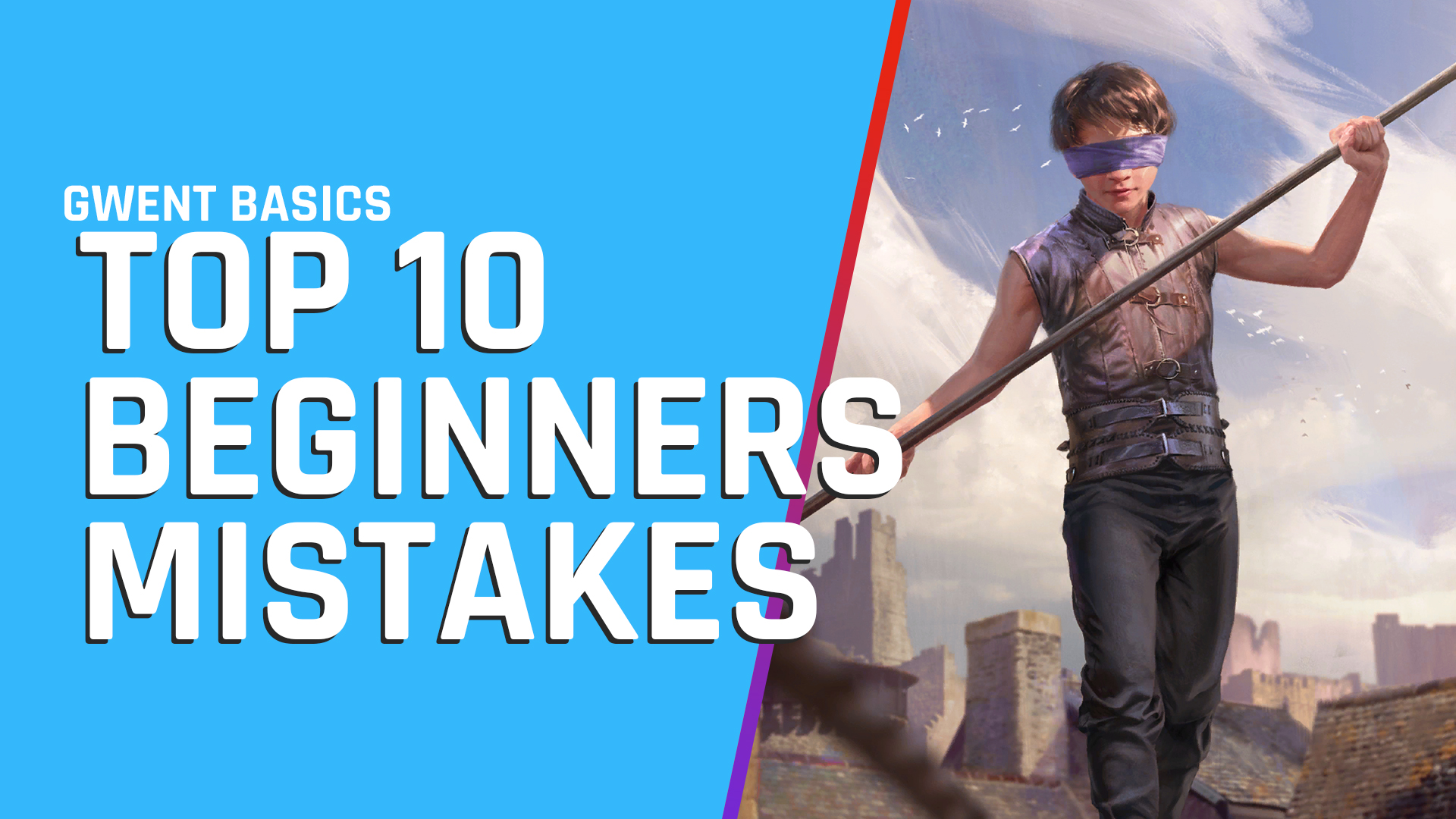Top 10 beginner mistakes

In this article we will list some of the most common mistakes that novice Gwent players commit.
1. Passing without calculating the engine value on board
This happens quite often, there are a lot of engines in most decks, and calculating their values can be hard, especially when time’s running out.
2. Knowing when to bleed and when to pass
This topic is very difficult to explain, but generally if you won round 1, and want to shorten the last round, you can go into a soft or hard bleed. This can happen because your opponent’s deck has an awesome long round, or because there are cards that you can’t answer, so you try to bleed them out in round 2.
A lot of players bleed incorrectly, just because they saw pro players do it in tournaments, so they want to bleed as often as they can. Correct bleeding can only be learned by practice, and by watching the aforemented good players.
3. Using all your key cards (and leader) just to win on even in round 1
That tactic is usually bad, because if you dropped all your golds in round 1, you don’t really have any more firepower to contest round 2 and 3. Sometimes it can work, if your opponent also drops his key cards, then you can try to keep ahead.
4. Milling your unused cards in the deckbuilder
There are balance patches in Gwent quite often, so you shouldn’t destroy your collection, because the non-used cards can be buffed to be playable. Gwent’s economy is very generous, so you can have competitive decks in no time.
5. Playing in practice mode
Beginners have a very hard time in casual, because in ranked they get opponents with the same skills and collection level, but casual don’t have this matchmaking limit, it queues everyone together, so it’s very likely that you’ll get an opponent from higher ranks who just wants to test his decks, or having easier time to win than in ranked.
And now some very specific ones.
6. Doomed
Doomed units are removed from the game when they leave the battlefield. This means that you can’t put them into your deck, and they won’t go into the graveyard.
7. Resilience
Resilient units stay on the battlefield for the next round, but they lose all their boost and armor If they were damaged, they won’t heal back. Note that Veil prevents gaining Resilience status for She Who Knows. Also, if you’d give Resilience to Yghern, it dies unfortunately, since as it loses its armor, it dies immediately.
8. Sukrus
Sukrus prevents all damage to the unit to its left. This means that a defender or Arnaghad are almost indestructible next to him.
9. Row limit
The row limit in Gwent is 9. That means that you can’t use your Overwhelming Hunger leader on a row that’s already full, because the Ekkimara won’t spawn (but the target unit is destroyed first anyway). Also, Master of Puppets can’t Seize units if your target row is full. Now let’s see Gezras’s ability. If he wants to move, but can’t, because the other row is full, he just won’t move, but does the extra ability regardless of he moved or not. So if he stayed in the Melee row, he’ll boost the other units on each turn end.
10. Bounty
There can be only one Bounty (like the Highlander) active, so you should destroy the first, before targeting other units. Bounty money doesn’t work with the Jackpot leader, because you don’t get the coin from a unit, but from the Bounty ability.




